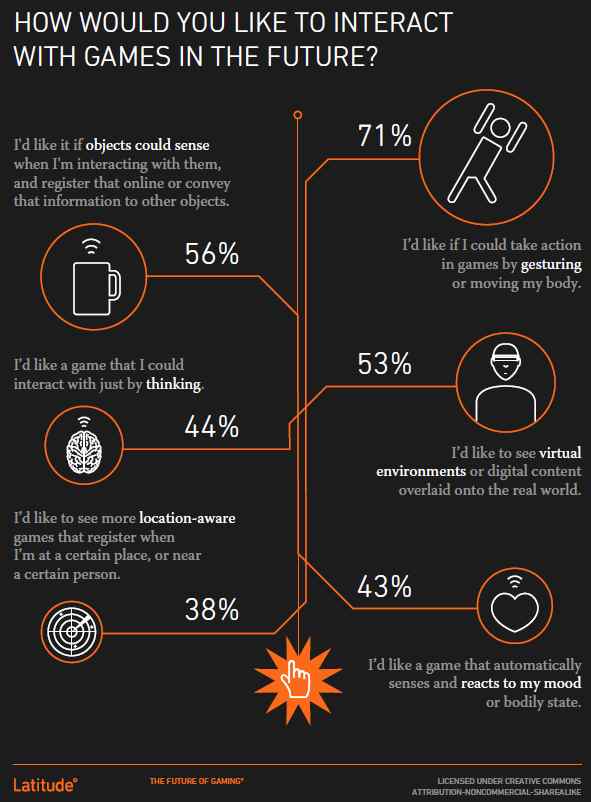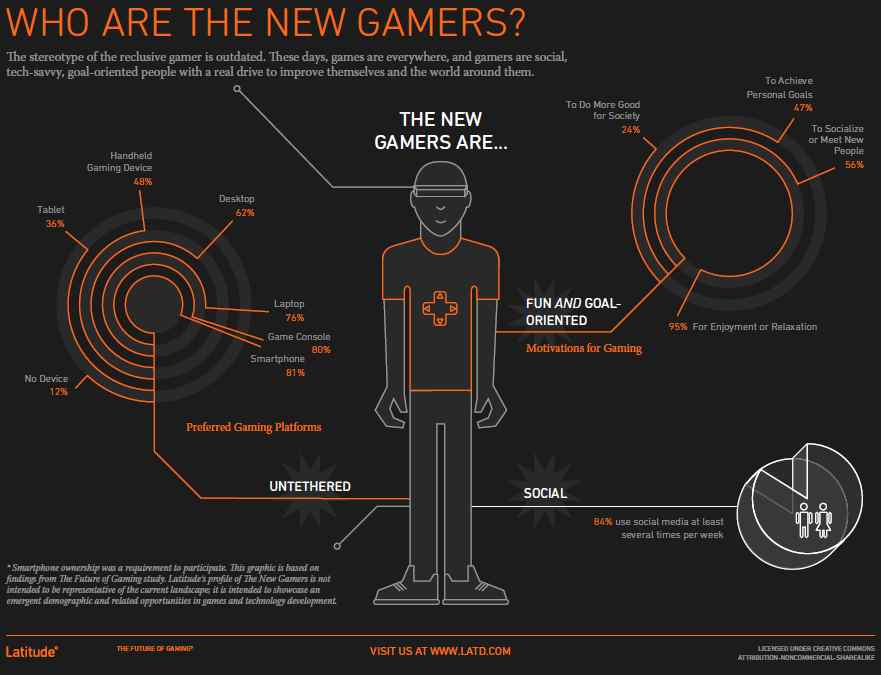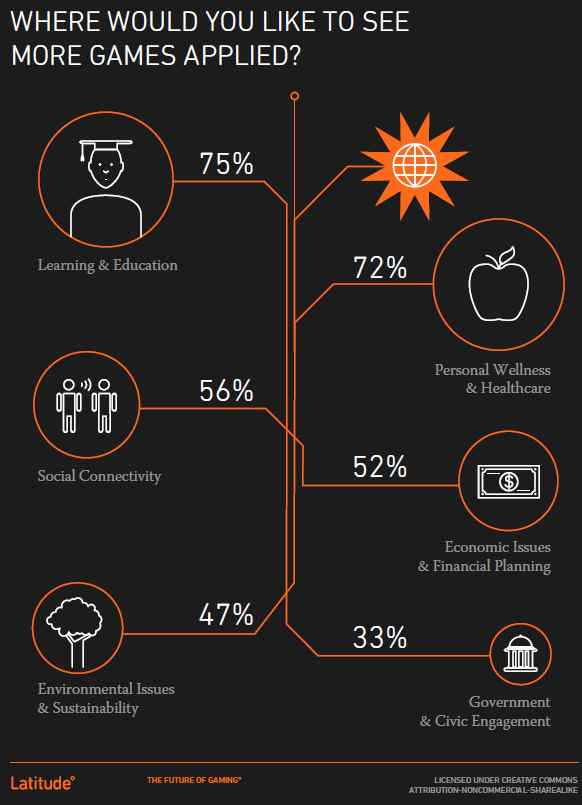| Gamers want reality and relevance |
| Written by David Conrad |
| Monday, 29 August 2011 |
|
An in-depth interview study of a sample of self-confessed gamers offers pointers to the future landscape of games. US-based research consultancy Latitude has presented some thought-provoking findings from a survey of 290 smartphone owners in the age range 15-54 and with equal numbers of men and women who claimed to be at least "casual gamers".
Click to enlarge
The conclusion drawn from the above infographic that summarizes how and why the survey participants play games is that it overturns the stereotype of the "reclusive gamer". Instead today's gamers are: social, tech-savvy, goal-oriented people with a real drive to improve themselves and the world around them The gamers typically use multiple platforms, with Smartphone being the most popular (perhaps an artifact of the sample being Smartphone owners) and while 95% play for enjoyment or relaxation, almost half play to achieve personal goals and even more play for social reasons, a motivation backed up by the finding that 84% use social media at least several times per week. In interviews conducted with both game makers and game enthusiasts for a "deeper-dive investigation into the psychology of gaming" Latitude set out to answer the following three questions:
Some of the interesting answers elicited are presented in the 9-minute video, "The Future of Gaming":
Among the insights from the interview study are:
As for how they want to play in future gamers want games to blend into the real world as this infographic shows.

So it is not so much that we need to gamify our serious apps but seriousify our games. Users want more than just fun from a game they want something that improves their position in the world be it a social bonus, an educational improvement or a better body. Perhaps we need to concentrate not so much on the success of Angry Birds but on "games" that help manage that anger.
More information:If you would like to be informed about new articles on I Programmer you can either follow us on Twitter or Facebook or you can subscribe to our weekly newsletter.
|
| Last Updated ( Monday, 29 August 2011 ) |



